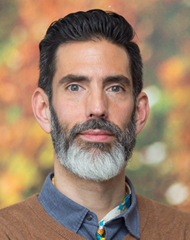A congress of the University of Navarra will address the relationship between society, politics, Education and religion from a historical perspective.
The event will feature expert speakers and moderators from Germany, Spain, the United States and France.

PHOTO: Manuel Castells
The Campus Madrid of the University of Navarra will host on March 4 and 5 the congress 'Public Sphere and Religion. Mutual Relationships in History, Education andSociety', organized by the project 'Religion and Civil Society' of the Institute for Culture and Society (ICS) of the academic center. This symposium will address the relationship between society, politics and Education from a historical perspective. Specifically, it will delve into how these spheres continue to maintain a close interaction with the religious.
According to Carl Antonius Lemke Duque, researcher of the ICS and organizer, the goal of the event is to show that "the historical perspective is essential to address these issues before delving into specialized aspects and problems to be solved today". He also assured that the congress aims to achieve a broad dialogue thanks to the presence of expert speakers and moderators from Germany, Spain, the United States and France.
Education public, Education civic and educational innovationsThe symposium is divided into three sections with three papers each. The first section will deal with 'German Idealism and public Education ' and will focus on figures such as Kant and the 'Contention of the Schools', Henrik Steffens and the idea of man in Krause.
The second part will deal with 'Democratic society and civic Education ' with lectures on Max Weber, culture and constitutional debates of the Weimar Republic and the transformation of religion in the context of neo-Kantian pedagogy in Spain.
Finally, there will be discussions on 'Global Plurality and Lifelong Learning', such as new horizons of the recent sociology of religion, transformative learning and its relationship with religion or the current pedagogical innovation in Jesuit educational centers.





